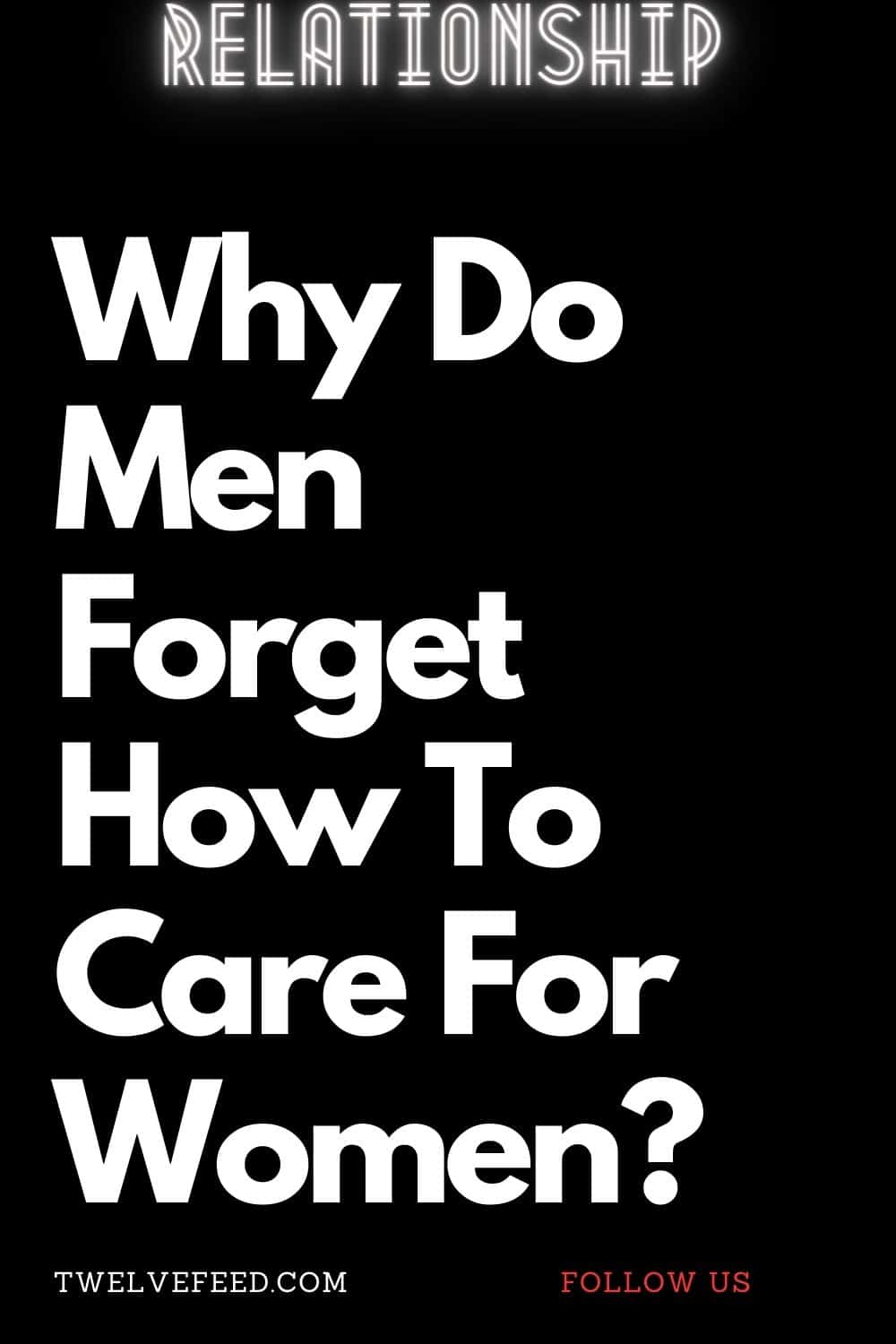
Men and women, despite sharing the same world, often face different challenges and experiences. While progress has been made in breaking down traditional gender roles, there are still instances where men struggle with caring for women. This article explores the reasons behind this phenomenon, shedding light on the cultural, social, and personal factors that contribute to men forgetting how to care for women. By understanding these underlying issues, we can work towards fostering healthier relationships and a more caring society.
Introduction
In a society where gender roles have been deeply ingrained for centuries, it is no surprise that men and women often have distinct approaches to caregiving. While some men excel at expressing care and empathy, others struggle to navigate these emotional aspects of relationships. Understanding why men forget how to care for women requires delving into various factors that shape their behavior and mindset.
The Cultural Conditioning of Gender Roles
From a young age, boys are often socialized to be tough, self-reliant, and emotionally stoic. These societal expectations can create a barrier to expressing care and vulnerability. The cultural conditioning of gender roles influences men’s behavior and can make it challenging for them to connect emotionally with women.
Communication Differences Between Men and Women
Men and women communicate differently, and this can lead to misunderstandings and a lack of connection. Men often prioritize problem-solving, while women tend to seek emotional support through communication. These divergent communication styles can contribute to men forgetting how to provide the care and emotional support that women need.
Lack of Emotional Intelligence
Emotional intelligence plays a crucial role in caregiving and maintaining healthy relationships. Unfortunately, men may not always receive the same emphasis on emotional intelligence development as women do. This lack of focus on emotional skills can lead to difficulties in understanding and responding to women’s emotional needs.
Societal Expectations and Pressures on Men
Society places immense pressure on men to fulfill certain roles and expectations. The societal emphasis on masculinity and the idea of being the provider can overshadow the importance of emotional care. These pressures can cause men to prioritize other aspects of their lives, such as work or personal achievements, inadvertently neglecting the care they should provide to women.
Emotional Labor and Mental Load
Emotional labor, the unseen and often unacknowledged work of managing emotions and maintaining relationships, is predominantly borne by women. This imbalance can lead to men forgetting how to care for women as they may not fully comprehend the emotional labor involved in maintaining a healthy relationship. Additionally, the mental load placed on women, such as managing household responsibilities and childcare, can further strain the caregiving dynamic.
The Impact of Stress and Overwhelm
In today’s fast-paced world, stress and overwhelm can affect both men and women. However, men may be less likely to seek help or support due to societal expectations of self-reliance. This internalization of stress can hinder their ability to provide care and support for women effectively.
The Role of Empathy and Active Listening
Empathy and active listening are essential skills for effective caregiving. Men can benefit from cultivating these qualities to better understand and empathize with the experiences and needs of women. By actively listening and empathizing, men can bridge the gap and provide the care that women require.
Breaking the Cycle: Building Better Relationships
Breaking the cycle of forgetting to care for women starts with building better relationships. This involves open and honest communication, mutual respect, and a willingness to learn and grow together. By consciously making an effort to prioritize care and support, men can create healthier and more fulfilling relationships.
Recognizing and Addressing Unconscious Bias
Unconscious biases can shape our perceptions and actions without us even realizing it. Men may hold unconscious biases that affect their ability to care for women effectively. Recognizing these biases and actively working to challenge and overcome them is crucial in fostering equal and compassionate care.
Creating Supportive Environments
Creating supportive environments is essential for men to remember how to care for women. This includes cultivating spaces where emotional expression and vulnerability are encouraged and celebrated. By creating a safe and supportive atmosphere, men can develop and maintain caring relationships with women.
The Importance of Education and Awareness
Education and awareness play a pivotal role in changing societal norms and expectations. By promoting education on gender equality, emotional intelligence, and effective communication, we can help men develop the skills and awareness necessary to care for women in meaningful ways.
Conclusion
In a world that is evolving and challenging traditional gender roles, it is crucial for men to remember how to care for women. Understanding the cultural conditioning, communication differences, and personal growth needed to bridge this gap is vital for building healthy and equitable relationships. By actively working towards empathy, self-awareness, and supportive environments, men can overcome the challenges and ensure that care for women becomes a natural and integral part of their lives.
FAQs
1. Can women also forget to care for men?
Yes, it is possible for women to forget to care for men just as men can forget to care for women. The focus of this article is on men’s perspective due to the specific topic provided. However, caregiving and nurturing should be a shared responsibility in any relationship.
2. Are all men forgetful when it comes to caring for women?
No, not all men forget how to care for women. Individuals vary in their abilities, experiences, and personal growth. While some men may struggle with caregiving, others excel at it. It is essential to recognize that generalizations should not be made about an entire gender.
3. How can men improve their caregiving skills?
Men can improve their caregiving skills by actively listening, practicing empathy, and seeking personal growth. Engaging in open and honest communication, learning about emotional intelligence, and challenging unconscious biases are also important steps towards becoming better caregivers.
4. What role does society play in shaping caregiving behaviors?
Society plays a significant role in shaping caregiving behaviors through cultural norms, expectations, and stereotypes. Men may face societal pressures that hinder their ability to provide care for women. By challenging these norms and promoting gender equality, we can create a more supportive and caring society.
5. How can couples work together to foster caregiving in their relationship?
Couples can foster caregiving in their relationship by prioritizing open communication, mutual respect, and active support. Creating a safe and nurturing environment where both partners feel comfortable expressing their needs and emotions is essential. Collaborating on household responsibilities and sharing the mental load can also contribute to a more balanced caregiving dynamic.





